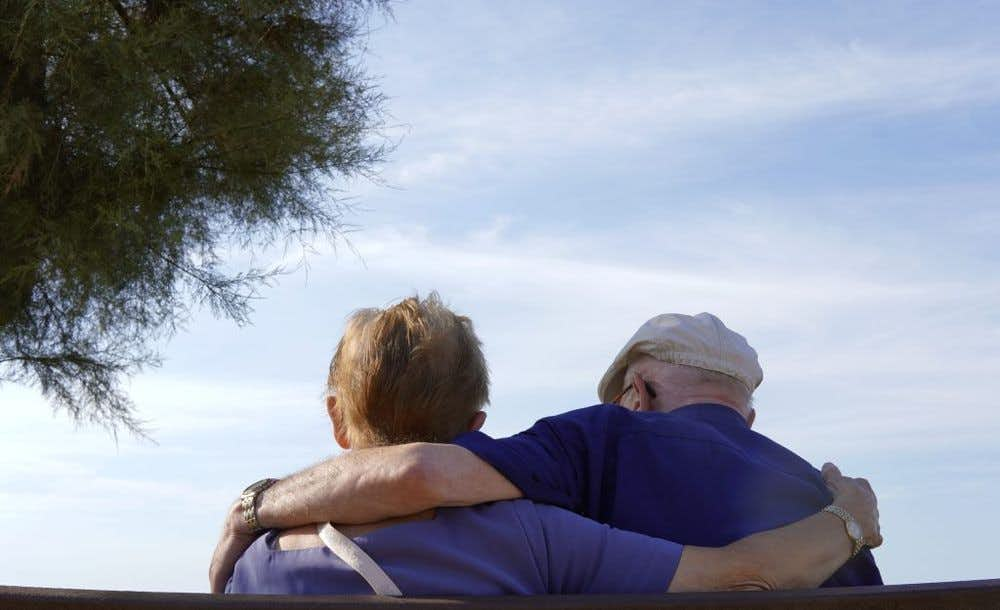August 30th, 2023

Grief is perhaps the heaviest emotion we, as humans, will ever experience. If you have never experienced grief in any capacity, consider yourself lucky. The burden of bearing feelings caused by grief is not light, nor should they be taken lightly.
Grief is defined as deep sorrow primarily caused by someone's death. However, grief is so much more than this. Grief is the pain of knowing that someone once in your life is no longer present and never coming back and trying to come to terms with that. Grief is the never-ending goodbye of a loved one, wishing and hoping you can have just one more moment with them, even knowing that will not be enough. It is important to note that we do not just grieve death. We mourn job loss, divorce, relationships and friendships that have ended, traumatic events we experience, and much more.
Along with this, we are grieving the time we have lost, the memories we wanted to make and never will, and the knowledge that we will never have that time or will never get it back. Grief is always there; some days, it is worse than others, but we always carry it. Some days, the suffering is a tap on the shoulder that makes us tear up when reminded of it, whereas other days, it is a punch to the gut that brings us to our knees in anguish.

Grief can come in many forms, and everyone experiences it differently. Some types of grief include:
People react differently to grief as well. Some people will get angry, some will be sad, and others will laugh and joke. You will see someone bury themselves in work, and you may see another person take time off to grieve. We all suffer in our ways, and no way is "right" or "wrong"; it is simply the way we process our feelings. Grief is complicated and complex in all forms and is not easily understood. It is also important to remember that the relationship with the deceased will significantly impact the relationship with grief.

No matter the type of grief or the relationship with it, the effects of grief can look similar for everyone. Grief can cause symptoms of depression, anxiety, and PTSD. Those experiencing grief can incur a loss of sleep, changes in appetite and weight, fatigue, restlessness, and diminished concentration. They can also experience profound sadness, guilt, fear, and isolation. PTSD symptoms may also be present following the death if it is traumatic. PTSD symptoms can include avoidance, nightmares, flashbacks, negative feelings, loss of interest in things that used to be enjoyable, and irritability. Grieving people may withdraw from their family and friends because they do not know how to express themselves or do not want to express their feelings. Sometimes, it is difficult for those grieving to process their grief with others because they feel that no one wants to hear it or deal with it, especially after some time. Many do not know or realize grief's impact on mental health and how it can present itself in forms of anxiety, depression, or PTSD. Many people also do not know how or when to seek help for their grief, which displays more barriers in the journey.

So, how do you cope with such a tragedy? There are a lot of coping techniques for grief and loss. Coping strategies can also vary depending on the type of grief. For example, if someone is experiencing complicated grief and cannot express their feelings, they may need to explore alternate outlets to process them. Art, music, and writing are all excellent means of expressing grief. Depending on the age of the person who experienced the loss, a child, for instance, drawing, play, or other methods of communication may be adequate to help understand and cope with the loss. Spending time with loved ones can also be therapeutic for the grieving process. Talking about the deceased, telling stories, sharing memories, and keeping them alive in spirit can be a beneficial coping tool. Referring to the loved one by name versus relationship (i.e., saying "John" as opposed to "my brother") is also a way of coping with grief as it acknowledges the person and their life. When grieving, joining support groups and connecting in similar ways with the community or others going through a similar loss may also be helpful. Speaking with a grief counselor is another option. Grief counseling helps people process and explore their grief and associated symptoms. Self-care during grief is essential, as is having and keeping a routine, especially in the first year (Cleveland Clinic, 2023). The best thing you can do for yourself while grieving is to feel your feelings and allow them to present themselves in any manner they choose. This journey is arduous; you do not have to walk it alone.
Written by: Emily Shelton, LCPC, LMHC, CADC, CAGCS, CRSS
*If you or someone is struggling with giref and loss, it's important that you know you're not alone. At Clarity Clinic, our grief group can help you effectively navigate these symptoms. This group is facilitated by Emily Shelton weekly every Wednesday from 7p.m to 8 p.m. Join us to gain knowledge and coping strategies for the grieving process.
At Clarity Clinic, we have highly trained staff specializing in therapy and psychiatry services. Clarity Clinic currently offers Medication Management and Therapy Services across Illinois. To learn more about how we can support your mental health, call Clarity Clinic at (312) 815-9660 or schedule an appointment today.
Our Services
Virtual/Online CarePHP and IOPAdult PsychiatryChild & Adolescent PsychiatryAdult TherapyChild & Adolescent TherapyCouples CounselingFamily TherapyGroup TherapyPsychological TestingTranscranial Magnetic Stimulation (TMS)